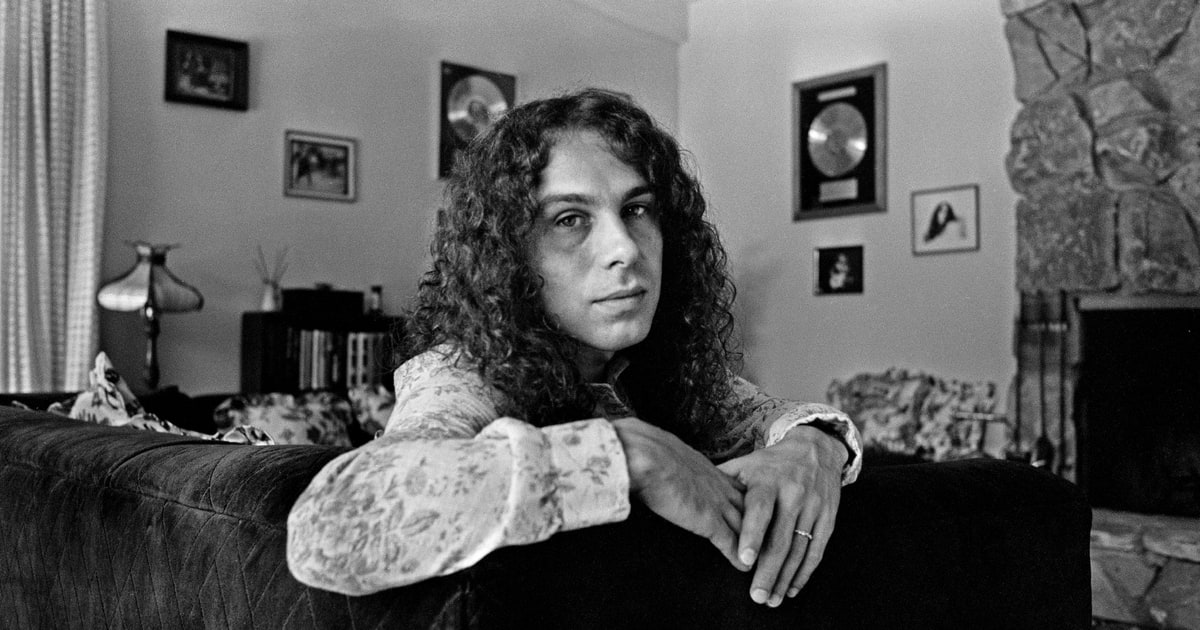“I cry out for magic, I feel it dancing in the light, it was cold, lost my hold, to the shadows of the night.” —Rainbow in the Dark
On May 16, 2010, Ronnie James Dio passed away from stomach cancer. Millions mourned the loss of a genuinely unbelievable soul. Dio spent a great deal of his career with the legendary heavy-metal band, Black Sabbath; but his best work stemmed from his solo career with his band, DIO.
Ronnie’s music took you on an epic journey, full of monsters, demons, and most importantly, heroes. And when you listened to him, you felt as though you were the hero of his intricate tale, that somehow your life, and its challenges, were simply obstacles to the creation of a deeper, and stronger, self. In his most notable song, Holy Diver, Ronnie told the story of a warrior who went into the underworld and learned certain universal truths: that there’s a difficult to bear truth behind the universal veil of lies, that we often make poor decisions despite knowing their inevitable consequences, and that life is a cycle of events that reoccur over and over again. But its most profound message was that despite these existential givens, one was still the hero of one’s owntale, and it was up to her to forge herself through existential suffering.
Dio’s songs focused on trauma and ways of regaining one’s locus of control; to him, we were simply rainbows abiding in a dark, and sometimes, seemingly desolate existence. And despite the fact that we felt hopeless and alone, Ronnie wanted us to know that all of us were his rainbows, radiating magic wherever we went. His lyrics were full of hope, and meant the world to a kid in desperate need of some. I remember listening to Dio during some of my life’s most difficult periods, when I was poor and almost evicted, and when I felt misunderstood by the rest of the world. Somehow, I felt that Ronnie knew what I went through, and he knew what it meant to search for hope on a perpetual quest for real magic.
My favorite song of his, and one of my favorite songs ever, is Hungry for Heaven. In it, Dio sings about a dreamer who searches for glory but refuses to suffer for it. The song teaches that the struggle is a significant aspect of the journey, without which dreams can’t come true; so, he implores the dreamer to remember that he isn’t entitled to his success, but must earn it through sustained effort, which humbles him along the way, preventing him from ever taking his achievements for granted: a lesson that I desperately needed in my persistently entitled state.
In Sacred Heart, Dio again sang about a difficult journey and one’s quest for a holy object. This object could only be attained through great courage, the potential for which each of us possess. It was a song of hope and one’s determination, the notion that will can engender joy, but that one had to risk failure to experience it.
That song resonated with a dreamer like me, particularly when Ronnie sang “Whenever you dream, you’re holding the key, it opens the door to let you be free.” Ronnie understood the importance of imagination, and with that insight, I feel like he understood me.
And in Rock n’ Roll Children, Dio sang about two outcasted teens who found each other through their love of rock music. The video is powerful in that it highlights two kids struggling to fit-in in their environments, one of whom lives with an abusive, alcoholic father. In it, both of them split-up and try to establish themselves in their respective situations, only to discover that they’ll never be accepted for who they are. So, in the end, they reconnect, vowing to never leave each other again.
Ronnie’s music touched so many lives, and gave hope to so many people. From him, we learned that our suffering didn’t mark the end of our great tales, that we were the architects of our lives, and had the ability to grow stronger and wiser through our sorrows. Fundamentally, Ronnie taught us that we are all brilliant rainbows in an often cruel and dark world.
Check out our episode with Wendy Dio:


2 Comments